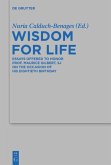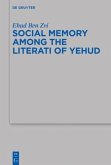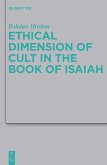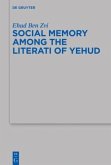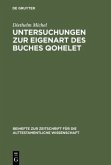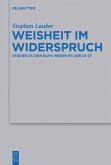Scholars of the Hebrew Bible used to look at "Prophecy" and "Wisdom" as clearly distinct realms represented by antagonistic and mutually exclusive roles of their central characters: the loyal sage, the pillar of administration, on the one side and the rebellious prophet, criticizing the establishment, on the other. While the influence of wisdom thought on prophetic texts has been a topic in the scholarly debate, the complementary question of the influence of prophetic thought on wisdom texts has rarely been asked.
The contributions in this volume look at both questions: They start from the assumption that texts from the Hebrew Bible and the cultures surrounding Ancient Israel all originated from a social stratum of educated scribes, who authored and transmitted these texts. It then seems plausible that wisdom texts might show similar traces of prophetic influence to those of wisdom thoughts found in prophetic texts. The essays give a multifaceted picture concerning the mutual perception of prophets and sages and thus provide a deeper understanding of both wisdom literature and prophecy.
Hinweis: Dieser Artikel kann nur an eine deutsche Lieferadresse ausgeliefert werden.
The contributions in this volume look at both questions: They start from the assumption that texts from the Hebrew Bible and the cultures surrounding Ancient Israel all originated from a social stratum of educated scribes, who authored and transmitted these texts. It then seems plausible that wisdom texts might show similar traces of prophetic influence to those of wisdom thoughts found in prophetic texts. The essays give a multifaceted picture concerning the mutual perception of prophets and sages and thus provide a deeper understanding of both wisdom literature and prophecy.
Hinweis: Dieser Artikel kann nur an eine deutsche Lieferadresse ausgeliefert werden.


